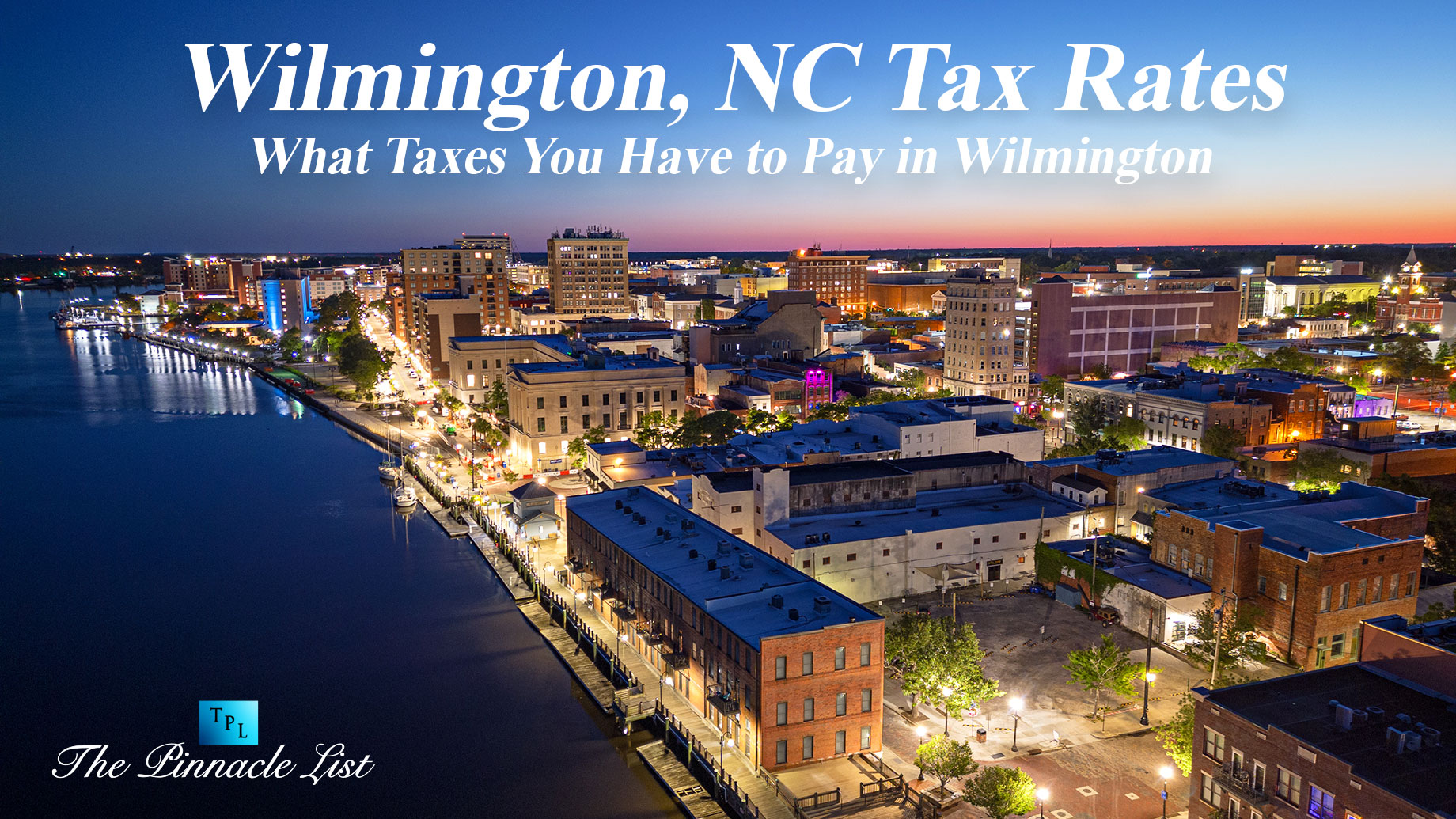
Welcome to Wilmington, North Carolina – a city that effortlessly blends the allure of Southern charm with the dynamism of a vibrant economic landscape.
Whether you’re already a proud resident or are among the many considering a move to this picturesque port city, gaining a clear understanding of Wilmington’s tax rates is an essential step in your journey of moving to Wilmington.
In this comprehensive guide, we’ll delve into the various tax categories prevalent in Wilmington. From property and sales tax to income and business taxes, our aim is to provide you with valuable insights and practical knowledge.
This information is not just crucial for current residents, but also for those planning to join the Wilmington community, ensuring a smooth transition into this enchanting Southern gem.
Property Taxes: Your Guide to Real Estate Levies
In Wilmington, property taxes are a vital component of the local tax structure. Property tax is a tax on real estate, including land and buildings. In Wilmington, NC, property tax rates are determined by the county and the city. The rate is calculated based on the assessed value of the property, which is determined by the county tax assessor.
The current property tax rate in Wilmington, NC, is 0.4875%, which is lower than the average property tax rate in North Carolina. However, it is important to note that property values in Wilmington, NC, are higher than the state average, which means that homeowners in the city may still pay more in property taxes than homeowners in other parts of the state.
Understanding Your Property Tax Bill
Your property tax bill is based on the assessed value of your property, which includes both the land and any buildings on it. The county assessor’s office conducts periodic assessments to determine this value. It’s important to note that there are ways to reduce your property tax bill. For example, North Carolina offers a homestead exemption for qualifying homeowners, which can significantly lower the taxable value of your property.
Sales Tax: Everyday Purchases in Wilmington
Wilmington residents also pay sales tax on most purchases. The total sales tax rate is a combination of North Carolina’s state sales tax and a local county tax. This rate applies to a wide range of items, from vehicles to household goods, making it an everyday consideration for budget-conscious residents.
What’s Taxable and What’s Not?
While many items are subject to sales tax, there are notable exceptions. Groceries, prescription drugs, and certain agricultural supplies are exempt from sales tax, offering some relief to consumers. Understanding these exemptions can help you manage your household expenses more effectively.
Income Tax: Understanding State and Federal Obligations
As residents of Wilmington, you’re subject to both state and federal income taxes. North Carolina has a streamlined, flat-rate income tax system, which simplifies the process of calculating your state tax liability. However, federal income taxes are more complex, with multiple brackets and deductions affecting your final tax bill.
The state has a flat income tax rate of 5.25%. This means that regardless of how much you earn, you will pay the same percentage of your income in taxes. Compared to other cities in North Carolina, Wilmington has a slightly higher income tax rate. However, it is important to note that the state of North Carolina has one of the lowest income tax rates in the country.
Tax Breaks and Credits
It’s important to be aware of the various tax breaks and credits available at both the state and federal levels. These can include deductions for homeowners, credits for families and education expenses, and incentives for energy-efficient home improvements. Taking advantage of these provisions can significantly reduce your overall tax burden.
Business Taxes: Operating in Wilmington
Wilmington’s business-friendly environment is reflected in its tax structure. North Carolina’s corporate income tax rate is one of the lowest in the country, benefiting businesses operating in Wilmington. In addition to corporate taxes, businesses must also consider sales tax on their transactions, property taxes on any owned real estate, and any specific industry-related taxes.
Sales tax is a tax on goods and services sold to consumers.
In Wilmington, NC, sales tax rates are determined by the state of North Carolina and New Hanover County. The current sales tax rate in Wilmington, NC, is 7%. This includes a state sales tax rate of 4.75% and a county sales tax rate of 2.25%. Compared to other cities in North Carolina, Wilmington has an average sales tax rate.
Navigating Business Tax Credits and Incentives
North Carolina and Wilmington offer various tax credits and incentives to encourage business growth and investment. These can include job creation credits, incentives for investing in certain economic sectors, and credits for research and development activities. Leveraging these incentives can be a game-changer for businesses looking to expand or establish a presence in Wilmington.
Estate and Inheritance Taxes: Planning for the Future
For those considering Wilmington as a place to settle down long-term, it’s reassuring to know that North Carolina does not impose an estate or inheritance tax. This makes estate planning somewhat simpler and can be a significant factor in your long-term financial planning.
Tourist Taxes: Impact on Visitors
Visitors to Wilmington should be aware of the tourist taxes imposed on short-term accommodations like hotels and rental properties. These taxes are used to fund tourism-related projects and are an important consideration when budgeting for a trip to this historic and scenic city.
Conclusion: Navigating Wilmington’s Tax System
Understanding Wilmington’s tax rates and regulations is essential for residents, business owners, and visitors alike. Keeping abreast of changes and planning accordingly can help you make the most of your financial resources in this dynamic city.
For personalized advice and guidance, it’s always best to consult with a tax professional or financial advisor. They can provide in-depth knowledge of Wilmington’s tax landscape and help you navigate the complexities of local, state, and federal tax laws.
If you wish to move to this city, hire professional movers in Wilmington, NC, to help you make the jump.